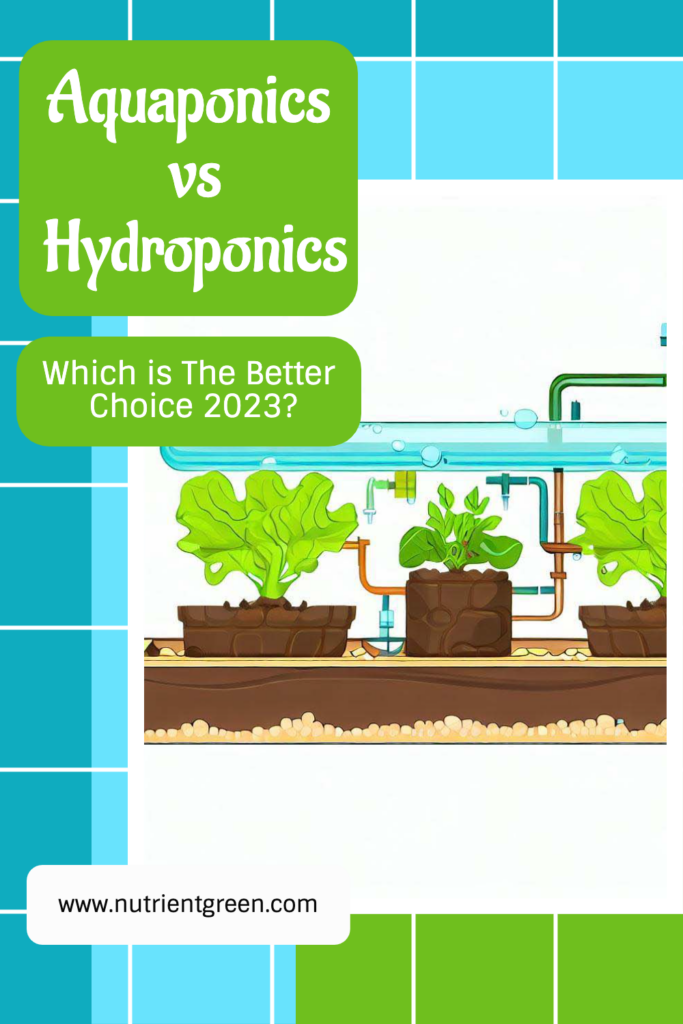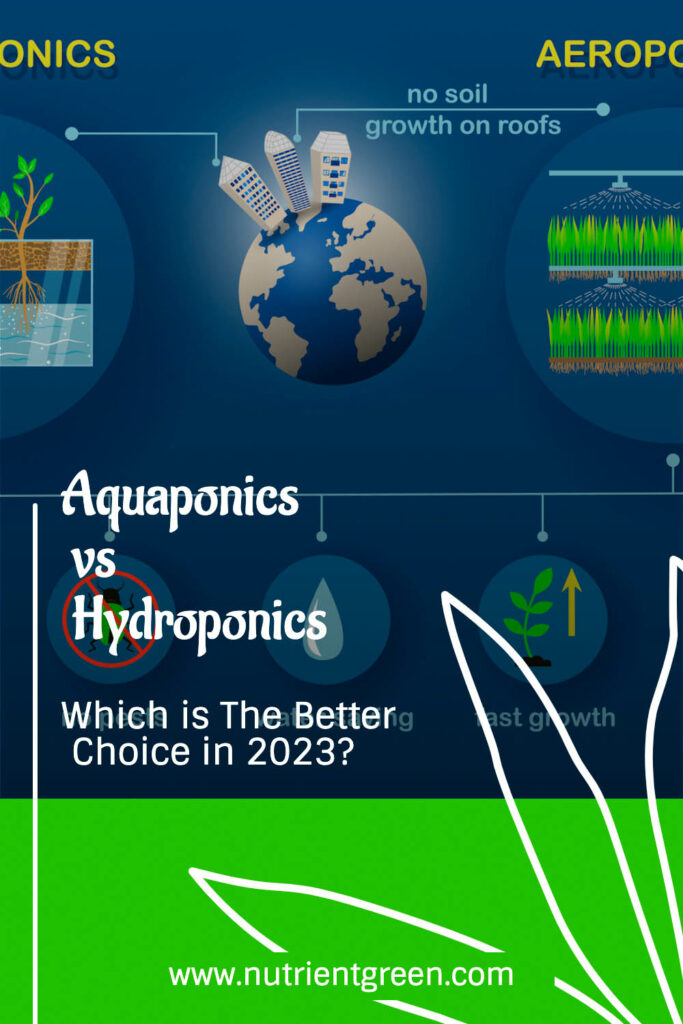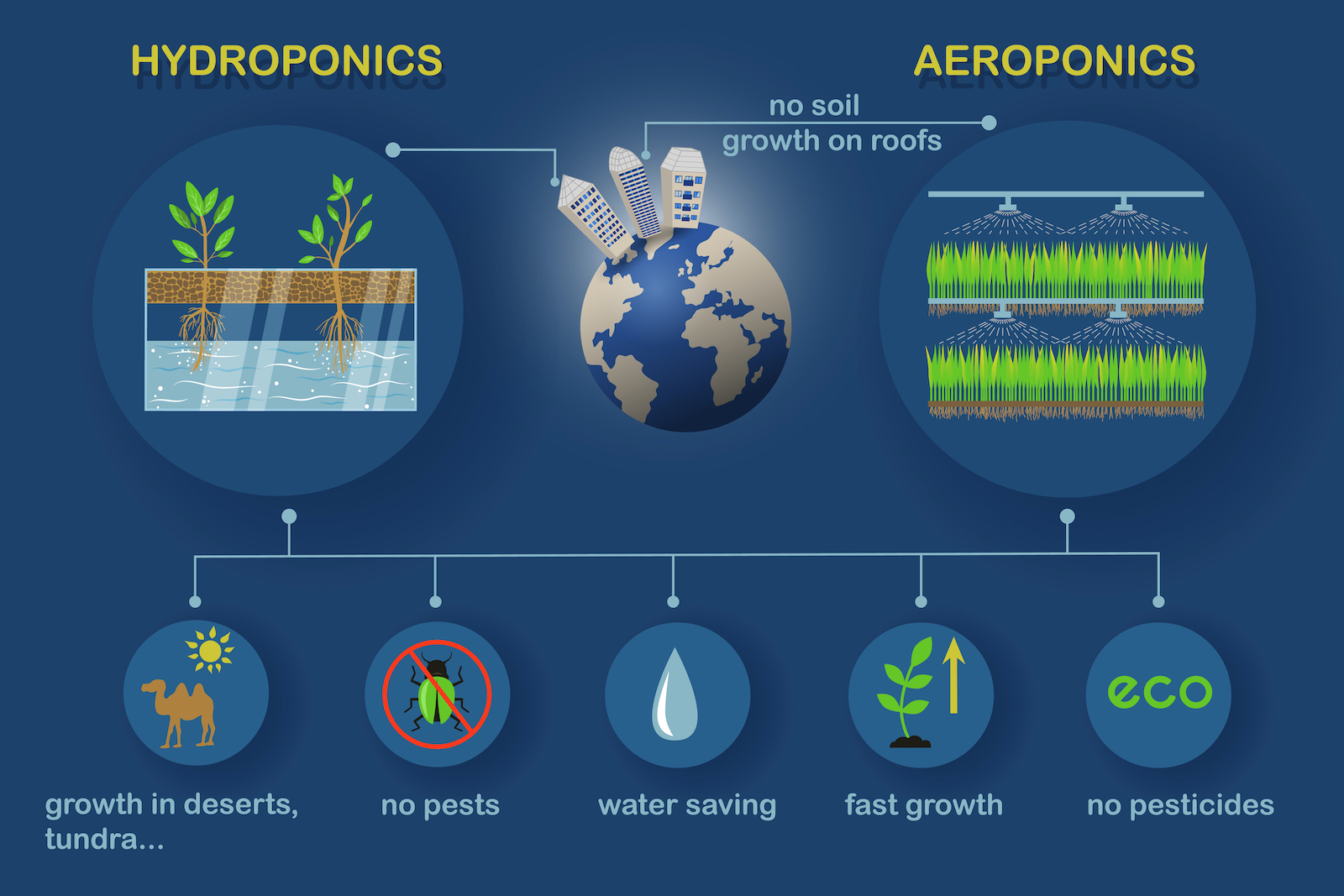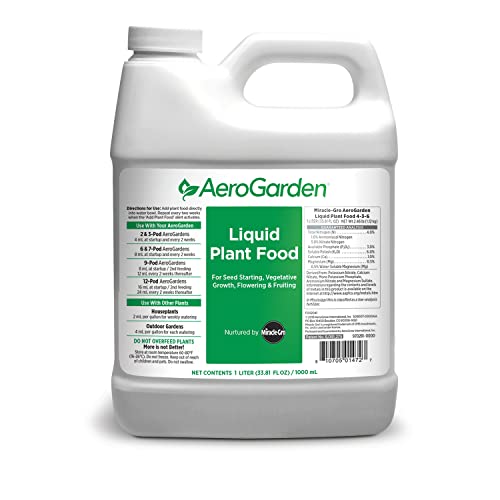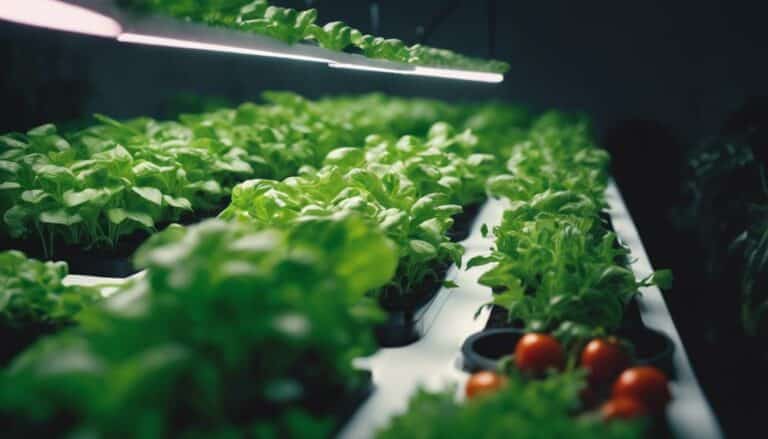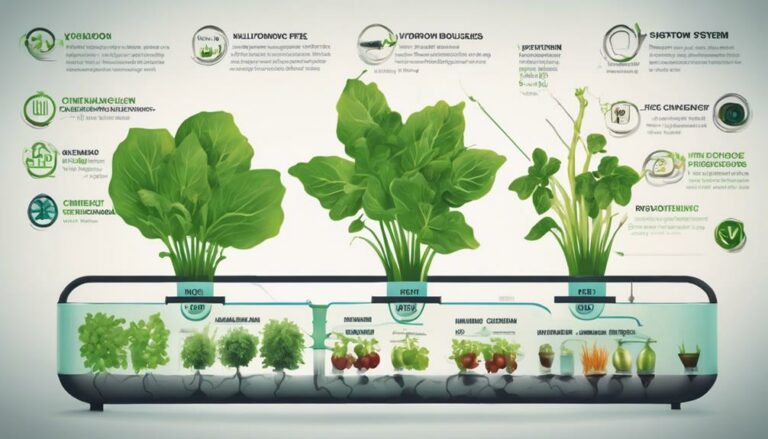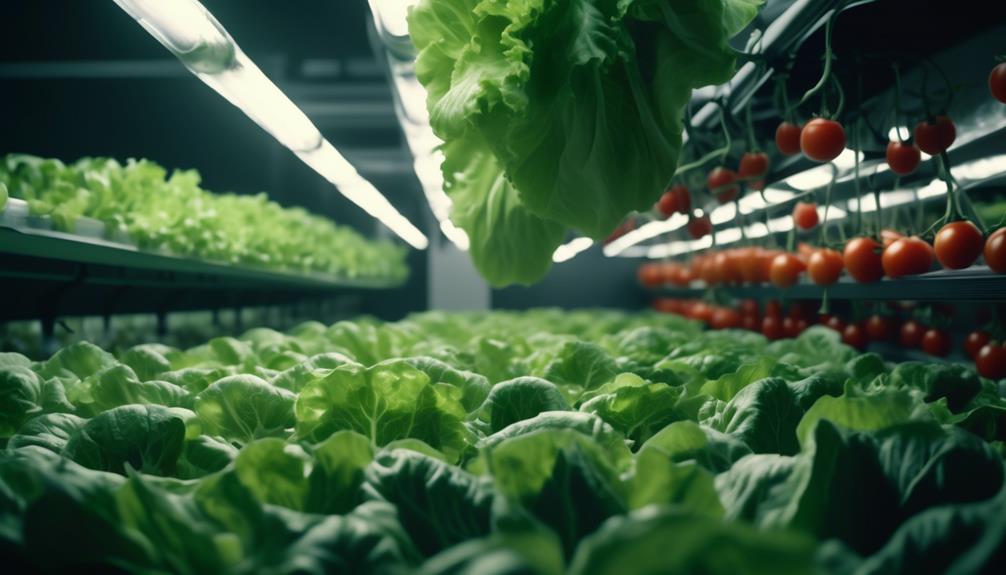Table of Contents
If you are looking for a way to grow plants without soil, you might have heard of aquaponics vs hydroponics. These are two innovative methods that use water as the main medium for plant growth. But what are they exactly? How do they work? And which one is better for you?
In this article, I will explain what aquaponics and hydroponics are, why they are popular among growers, what are their benefits and challenges, how they compare with each other, and which one I personally prefer. By the end of this article, you will have a clear idea of which system suits your needs best.
What are Aquaponics and Hydroponics?
Aquaponics is a combination of aquaculture (raising fish) and hydroponics (growing plants in water). In an aquaponic system, fish produce waste that contains ammonia. This waste is pumped to a biofilter where beneficial bacteria convert ammonia into nitrites then into nitrates. Nitrates are essential nutrients for plants. The water then flows to a grow bed where plants absorb nitrates through their roots. The water is then returned to the fish tank after being filtered by the plants. This creates a symbiotic relationship between fish and plants.
Hydroponics is a method of growing plants in water without soil. In a hydroponic system, plants are supported by an inert medium such as rockwool or perlite. The grower adds nutrients to the water according to the specific needs of each plant. The water is circulated through a pump or gravity to deliver nutrients to the plant roots. The excess water is drained back to a reservoir where it can be reused.
Why are Aquaponics and Hydroponics Popular?
Aquaponics and hydroponics are popular because they offer many advantages over traditional soil-based gardening.
Some of these advantages are:
- They save space. You can grow more plants in less area with aquaponics or hydroponics than with soil.
- They save water. You use up to 90% less water with aquaponics or hydroponics than with soil because water is recycled in a closed loop system.
- They save time. You don’t have to weed, till, or fertilize your plants with aquaponics or hydroponics as you would with soil.
- They produce higher yields. You can harvest more crops per square foot with aquaponics or hydroponics than with soil because you can control the optimal conditions for plant growth.
- They produce healthier plants. You can avoid pests, diseases, weeds, and soil contamination with aquaponics or hydroponics because you grow your plants in a sterile environment.
What are the Main Differences Between Aquaponics vs Hydroponics?
Although aquaponics and hydroponics share some similarities, they also have some significant differences that affect their performance, cost, maintenance, and environmental impact.
Here are some of the main differences between them:
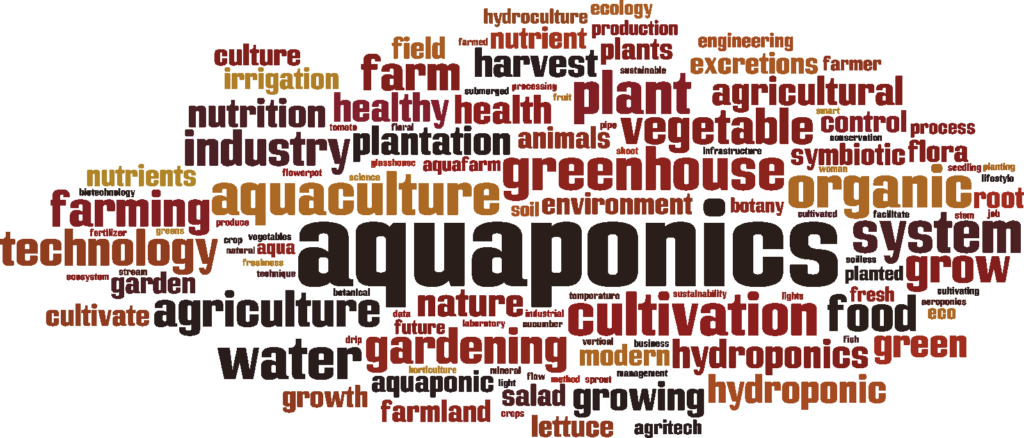
Benefits of Aquaponics
Aquaponics offers unique advantages that make it an appealing choice for growers. These include:
- Sustainable and eco-friendly: Aquaponics replicates natural ecosystems, promoting a harmonious coexistence between fish and plants. It eliminates the need for synthetic fertilizers or pesticides, ensuring environmental and human health safety.
- Dual harvest: Aquaponics enables the simultaneous cultivation of fish and plants within a single system. Enjoy fresh, organic fish alongside your homegrown vegetables and herbs.
- Water efficiency and waste reduction: Aquaponics minimizes water consumption by recycling water from the fish tank to the grow bed. It also transforms fish waste into valuable plant nutrients, minimizing waste disposal.
- Natural fertilizers and pest control: Aquaponics utilizes fish waste, rich in nitrogen, phosphorus, potassium, and other micronutrients, as a natural fertilizer for plants. Additionally, beneficial insects like ladybugs and lacewings attracted to the system provide natural pest control, preying on harmful insects like aphids and whiteflies.
Challenges of Aquaponics
Despite its benefits, aquaponics presents some challenges that can make its setup and operation more demanding compared to hydroponics.
These challenges include:
- Complex and costly setup: Aquaponics requires additional components and equipment, such as fish tanks, biofilters, aeration devices, heaters, and testing kits, making it more complex and expensive than hydroponics. It also demands more space and plumbing arrangements.
- Vigilant monitoring and maintenance: Aquaponics demands constant attention and adjustment to maintain optimal conditions for both fish and plants. Regular monitoring of water quality, temperature, pH, ammonia, nitrite, nitrate, dissolved oxygen, and other parameters is necessary. Additionally, feeding and caring for the fish and periodic system cleaning are vital.
- Dependency on fish health and welfare: The success of aquaponics relies on the well-being of the fish, as they provide essential nutrients for the plants. If the fish become ill or die, the plants will suffer. Proper fish selection, adequate space, nutrition, oxygen, and shelter are crucial. Adhering to ethical and legal guidelines for animal welfare and disposal is also important.
- Limited fish and plant choices: Aquaponics restricts options for fish and plants due to their specific needs and compatibility. Selecting species that can tolerate similar water temperatures, pH levels, salinity, and nutrient requirements is essential. Compatibility between fish and plants, avoiding predators or competitors, is another consideration.
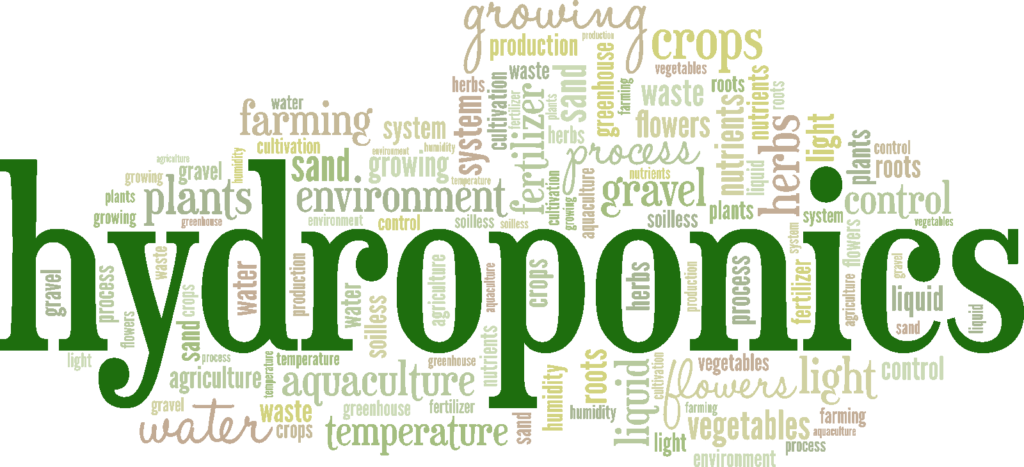
Benefits of Hydroponics
Hydroponics has some unique benefits that make it an attractive option for some growers.
These include:
- Simple and flexible to set up. Hydroponics requires fewer components and equipment than aquaponics, such as no fish tanks, biofilters, or aeration devices. It also requires less space and plumbing than aquaponics.
- Allows precise control over nutrients and pH. Hydroponics allows you to adjust the nutrient solution and pH level according to the specific needs of each plant. You can also change the nutrient solution easily and frequently to prevent nutrient buildup or deficiency.
- Increases plant growth and yield. Hydroponics provides optimal conditions for plant growth by delivering nutrients directly to the plant roots. This results in faster growth, higher yield, and better quality of plants than soil-based gardening.
- Offers a wide variety of plants. Hydroponics allows you to grow almost any type of plant that you can grow in soil, as long as you provide the right nutrients and environment. You can also grow plants that are not native to your area or season by creating artificial climates.
Challenges of Hydroponics
Hydroponics also has some challenges that make it more difficult to sustain than aquaponics.
These include:
- Not fully sustainable or organic. Hydroponics relies on synthetic fertilizers and chemicals that are not renewable or biodegradable. It also does not mimic natural ecosystems or cycles that support biodiversity and ecological balance.
- Requires constant supply of electricity and water. Hydroponics depends on electricity to run pumps, lights, heaters, and other devices that keep the system running. It also depends on water to replenish the nutrient solution that evaporates or leaks. If there is a power outage or water shortage, the system could fail quickly.
- Prone to nutrient deficiencies and diseases. Hydroponics is vulnerable to nutrient imbalances and fluctuations that could affect plant health and growth. It is also susceptible to diseases and pests that could spread rapidly in a closed system without natural predators or competitors.
- Involves high initial and operational costs. Hydroponics involves high upfront costs for buying or building the system components and equipment. It also involves high ongoing costs for buying nutrients, water, electricity, and other supplies.
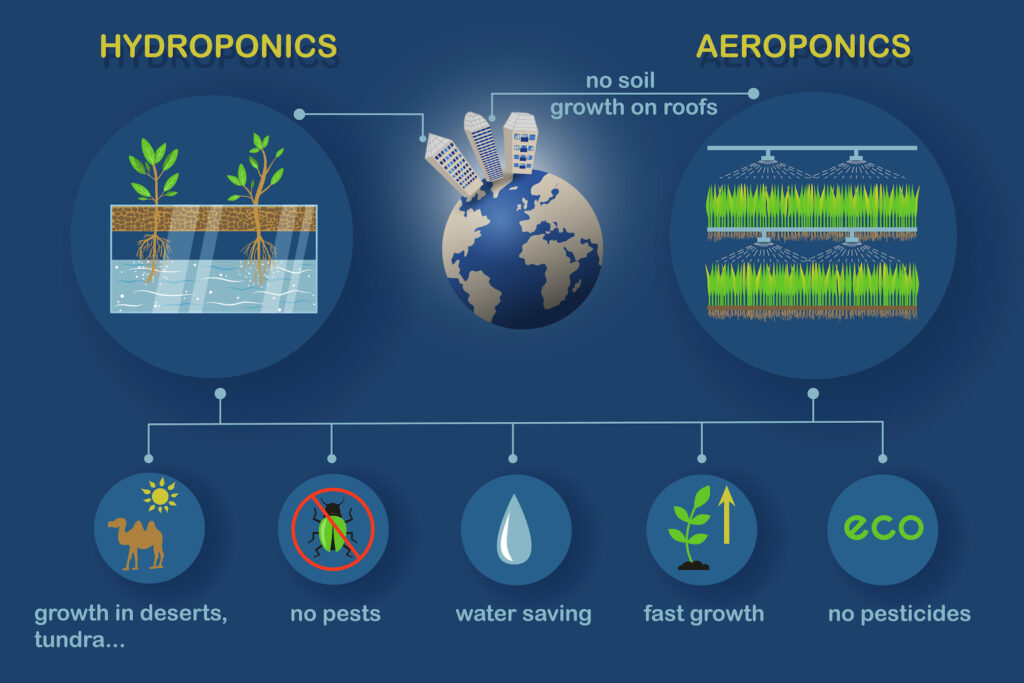
Comparison of Aquaponics vs Hydroponics
To compare aquaponics and hydroponics more objectively, let’s look at some key factors that affect their performance, cost, maintenance, and environmental impact.
System design and components
Aquaponics requires more system design and components than hydroponics because it involves both fish and plants. Aquaponics needs fish tanks, biofilters, aeration devices, heaters, testing kits, fish food, and fish stock. Hydroponics only needs growing media, reservoirs, pumps, tubing, nutrients, and pH adjusters.
Startup and operating costs
Aquaponics and hydroponics have similar startup costs for buying or building the system components and equipment. However, aquaponics involves a few more components such as filtration, additional aeration, and fish. Fish costs vary according to the fish selected for the system. Hydroponics requires buying nutrients and pH adjusters that are not needed for aquaponics. https://www.tandfonline.com/doi/full/10.1080/10454438.2021.1958729
Operating costs also vary depending on the system size, type, and location. Aquaponics requires buying fish food, testing kits, and electricity for pumps, heaters, and lights. Hydroponics requires buying nutrients, water, electricity, and other supplies. Aquaponics may have lower operating costs than hydroponics in the long run because it recycles water and nutrients more efficiently than hydroponics
https://psci.princeton.edu/tips/2020/11/9/the-future-of-farming-hydroponics.
Environmental impact
Aquaponics and hydroponics both have positive environmental impacts compared to soil-based gardening because they save water, space, and energy. However, aquaponics may have a lower environmental impact than hydroponics because it is more sustainable and organic. Aquaponics uses natural fertilizers from fish waste instead of synthetic fertilizers that could harm the environment or human health. Aquaponics also mimics natural ecosystems and cycles that support biodiversity and ecological balance.
Hydroponics relies on synthetic fertilizers and chemicals that are not renewable or biodegradable. Hydroponics also depends on electricity and water that could be scarce or expensive in some areas. Hydroponics does not mimic natural ecosystems or cycles that support biodiversity and ecological balance.
Plant quality and quantity
Aquaponics vs hydroponics both produce high-quality and high-quantity plants compared to soil-based gardening because they provide optimal conditions for plant growth. However, there may be some differences in plant quality and quantity depending on the system type, size, and location.
Aquaponics may produce more nutritious plants than hydroponics because it provides a wider range of nutrients from fish waste than hydroponics does from synthetic fertilizers. Aquaponics may also produce more flavorful plants than hydroponics because it provides natural minerals and trace elements from fish waste that enhance plant taste.
Hydroponics may produce faster-growing plants than aquaponics because it allows precise control over nutrients and pH levels that affect plant growth. Hydroponics may also produce more diverse plants than aquaponics because it allows growing almost any type of plant that can grow in soil as long as the right nutrients and environment are provided.
| Factor | Aquaponics | Hydroponics |
|---|---|---|
| System design and components | Requires more components such as fish tanks, biofilters, aeration devices, heaters, testing kits, fish food, and fish stock | Requires fewer components such as growing media, reservoirs, pumps, tubing, nutrients, and pH adjusters |
| Startup and operating costs | Involves higher initial and operating costs than hydroponics because of more components and maintenance | Involves lower initial and operating costs than aquaponics because of fewer components and maintenance |
| Environmental impact | Has lower environmental impact than hydroponics because it is more sustainable and organic. Uses natural fertilizers from fish waste instead of synthetic fertilizers. Mimics natural ecosystems and cycles that support biodiversity and ecological balance | Has higher environmental impact than aquaponics because it is less sustainable and organic. Relies on synthetic fertilizers and chemicals that are not renewable or biodegradable. Depends on electricity and water that could be scarce or expensive in some areas. Does not mimic natural ecosystems or cycles that support biodiversity and ecological balance |
| Plant quality and quantity | May produce more nutritious and flavorful plants than hydroponics because it provides a wider range of nutrients from fish waste than hydroponics does from synthetic fertilizers. Provides natural minerals and trace elements from fish waste that enhance plant taste | May produce faster-growing and more diverse plants than aquaponics because it allows precise control over nutrients and pH levels that affect plant growth. Allows growing almost any type of plant that can grow in soil as long as the right nutrients and environment are provided |
| Nutrient levels | Research found that aquaponic-grown plants had more potassium, calcium, sodium, and magnesium yields compared to hydroponic plants | Research found that hydroponic-grown plants had more phosphorus yields compared to aquaponic plants |
| Produce yields | Both systems have similar produce yields | Both systems have similar produce yields |
Here are some tips on how to choose the best system for you:
- Consider your climate: If you live in a warm climate, aquaponics may be preferable as it can handle higher temperatures and produce both fish and plants. If you live in a cold climate, hydroponics may be a better choice as it can handle lower temperatures and offer a wider variety of plants.
- Consider your space: If you have a large space, aquaponics may be more suitable as it requires more space and plumbing compared to hydroponics. If you have limited space, hydroponics can be a better fit as it requires less space and plumbing.
- Consider your budget: If you have a higher budget, aquaponics may be preferred, despite the higher initial and operating costs. If you have a lower budget, hydroponics may be more financially feasible as it involves lower costs.
- Consider your skills: If you have advanced skills and are willing to take on more complex design and maintenance, aquaponics may be a rewarding choice. If you have basic skills and prefer a simpler setup and maintenance routine, hydroponics can be a more suitable option.
Ultimately, the choice between aquaponics and hydroponics is subjective, and you can experiment with both systems to determine which one works best for you. Personally, I lean towards aquaponics due to its ability to create a natural ecosystem that produces both fish and plants while prioritizing sustainability. However, I also appreciate the simplicity and flexibility of hydroponics, which I sometimes utilize for growing plants incompatible with aquaponics.
Conclusion
Aquaponics vs hydroponics are both innovative methods of growing plants without soil that offer many benefits over traditional soil-based gardening. They both save space, water, time, and energy while producing higher yields and healthier plants.
However, they also have some significant differences that affect their performance, cost, maintenance, and environmental impact. Aquaponics is more sustainable and eco-friendly but more complex and expensive to set up and operate than hydroponics. Aquaponics produces both fish and plants but limits the choice of compatible species. Hydroponics, on the other hand, is simpler and more flexible to set up and operate but is less sustainable and organic compared to aquaponics. It allows precise control over nutrients and pH but requires a constant supply of electricity and water.
So, which system is better? The answer depends on your personal preferences, goals, resources, and location. There is no definitive answer, as both systems have their pros and cons. You need to weigh the advantages and disadvantages of each system and decide which one suits your needs best.
I hope this article has provided you with a better understanding of the differences between aquaponics vs hydroponics and helped you make an informed decision. Remember, the choice is yours, and you can explore both systems to find the one that aligns with your goals and preferences.
Happy growing!
FAQs
What is the difference between aquaponics vs hydroponics?
Aquaponics and hydroponics are both soilless methods of plant cultivation using water as the primary medium. The key distinction is that aquaponics combines fish farming with plant cultivation, while hydroponics involves adding synthetic nutrients to the water. In aquaponics, fish waste serves as a natural fertilizer, whereas hydroponics relies on artificial fertilizers and chemicals.
aquaponics vs hydroponics – Which system is more profitable?
The profitability of aquaponics and hydroponics depends on various factors, including system size, type, location, market demand, and operational expenses. Aquaponics can be more lucrative in certain scenarios because it yields both fish and plants that can be sold or consumed. Additionally, aquaponics often exhibits lower operating costs due to its efficient water and nutrient recycling. However, aquaponics entails higher initial expenses and more intricate maintenance compared to hydroponics. Hydroponics, on the other hand, may be more profitable in certain cases as it enables faster plant growth and offers a broader range of crop options. It also tends to have lower start-up costs and simpler maintenance. However, hydroponics generally incurs higher operating costs and poses a greater environmental impact than aquaponics.
aquaponics vs hydroponics – Which system is easier to maintain?
The maintenance requirements of aquaponics and hydroponics depend on factors such as system design, size, type, and location. Aquaponics typically demands more attention and care since it involves both fish and plants. Regular monitoring and adjustments are necessary for maintaining water quality, temperature, pH levels, ammonia, nitrite, nitrate, dissolved oxygen, and other parameters. Feeding the fish and periodic system cleaning are also essential tasks. In contrast, hydroponics necessitates less maintenance as it focuses solely on plant growth. Monitoring and periodic adjustments of nutrient solutions and pH levels are typically required. Changing the nutrient solution periodically helps prevent nutrient imbalances.
Which system is more suitable for beginners?
The suitability of aquaponics and hydroponics for beginners relies on personal preferences, goals, resources, and location. Aquaponics may be more suitable for beginners intrigued by the concept of creating a sustainable and eco-friendly ecosystem that produces both fish and plants. It might also be ideal for beginners with ample space, a higher budget, and advanced skills. Hydroponics, on the other hand, may be more suitable for beginners seeking simplicity and flexibility in growing a diverse range of plants. Hydroponics can be a viable option for those with limited space, a lower budget, and basic skills.
Which system is more environmentally friendly?
Both aquaponics and hydroponics offer positive environmental benefits compared to traditional soil-based gardening. They conserve water, space, and energy while producing higher yields and healthier plants. However, aquaponics tends to have a lower environmental impact due to its sustainable and organic nature. Aquaponics employs natural fertilizers derived from fish waste instead of synthetic alternatives that can harm the environment and human health. Moreover, aquaponics emulates natural ecosystems and promotes biodiversity and ecological balance. In contrast, hydroponics relies on synthetic fertilizers and chemicals that are non-renewable and non-biodegradable. Hydroponics also depends on electricity and water, which can be scarce or expensive in certain regions. Additionally, hydroponics does not replicate natural ecosystems or cycles that support biodiversity and ecological harmony.
